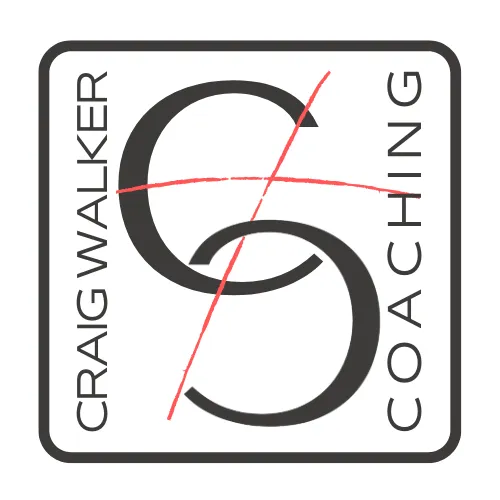ABOUT
PODCAST

TRULY A MASTERPIECE
BLOG
CONTACT
Helping Christian Men
overcome self-doubt and shame
so that they can become more influential husbands, fathers and leaders.
YOU ARE TRULY A MASTERPIECE

“For we are God’s masterpiece. He created us anew in Christ Jesus, so we can do the good things God planned for us long ago.”
Ephesians 2:10 (NLT)
Have you lived your life wishing you are someone you are not?
Do you hold people at arms length fearing they might find out you're not really who you say you are?
Do you have a pattern of living your life for validation from other people?
Have you ever tried to do better, be more dedicated, be more outgoing, more prayerful, more faithful, only to feel stuck, even paralyzed in fear and self-doubt?
SHAMELESS IS for YOU!

Hear from Senior Associate at TBG Partners
Brennan Dedon on Shameless:
Don't Wait Any Longer!
Hear from Teaching Pastor at C-Life Church,
Jeremy Fisher on Shameless:
TRULY A MASTERPIECE

Full WidthABOUT
BLOG
CONTACT
PODCAST
LIVE THE LIFE
YOU WERE BORN TO LOVE
Say goodbye to feeling like you have failed, yet again, in your life, your marriage, your relationship with your kid(s), and maybe even your job.
Discover an increase in income and impact, and build unshakable confidence as a Father, Husband and Leader.
Learn to love yourself and others authentically.
Destroy the strongholds that keep you from being INFLUENTIAL.
MEET CRAIG WALKER

This is his story ...
At age 25, Craig was living the dream. Married to his high school sweetheart, Craig had a great job, a house in the country club, a new car, and a boat. On top of that, he had just bought an airplane. Regardless of his achievements, he knew something was missing. That was when Craig came to faith in Christ.
A short time later, Craig left his job to pursue a career in Christian ministry. Craig said, “I spent 25 years chasing an empty dream. I want to spend the rest of my life doing something that will last.” Craig served in missions on the US and Mexico border, as a lead pastor, and planted churches in Brownsville, Texas; Noblesville, Indiana, and Celina, Texas.
It was in Celina that Craig had a crisis of faith. The church that he and his family planted grew from a small launch team to an average of 325 in just three years. They even had a record high of 525 on Easter Sunday! Although the church was doing well statistically, Craig knew there was a problem. He was not a healthy leader. He was dealing with the paralysis of self-doubt.
Within three years, the church barely resembled the once thriving church. Believing the church could not return to health and solid growth under his leadership, Craig prayed for God to let him leave. He wanted to quit. When all seemed lost, Craig had the thought: “If God is God…?”
With the thought, 'If God is God', ringing in his head, Craig found the courage to hold on. He sought out the help of a professional coach who challenged him to deal with his crippling self-doubts. Through the coach’s counsel and the wisdom of the Scriptures, Craig found the help he needed. Taking one step a time, self-doubt was destroyed. In its place, Craig found growing confidence, courage, and joy.
By 2014, the church was turning around. Hope had been restored. Once again, people were coming to faith in Christ and being baptized. New staff was hired. Within two years, the once faltering church was a memory. It had returned to full health and solid growth. Craig credits the turn around to God healing his self-worth. With his new sense of identity, Craig came to believe that God can do anything, and that He can do anything through him.
He believes the same is true for you!
For that reason, Craig took the lessons he learned and created Truly a Masterpiece, a coaching program designed to help Christian men win over their crippling doubts.
Taking the next step, Craig resigned as a church planting pastor. Then he and his wife, Debbie, founded Craig Walker Coaching. Living in East Texas, Craig and Debbie are growing their online ministry and are using their lives to help Christian men win the battle over self-doubt to become more influential husbands, fathers, and leaders. Craig and Debbie have six children, kids-in-laws and a lot of grandchildren. Craig is also writing a book to help even more people break free from the paralysis of self-doubt!
Within three years, the church barely resembled the once thriving church. Believing the church could not return to health and solid growth under his leadership, Craig prayed for God to let him leave. He wanted to quit. When all seemed lost, Craig had the thought: “If God is God…?”
With the thought, 'If God is God', ringing in his head, Craig found the courage to hold on. He sought out the help of a professional coach who challenged him to deal with his crippling self-doubts. Through the coach’s counsel and the wisdom of the Scriptures, Craig found the help he needed. Taking one step a time, self-doubt was destroyed. In its place, Craig found growing confidence, courage, and joy.
By 2014, the church was turning around. Hope had been restored. Once again, people were coming to faith in Christ and being baptized. New staff was hired. Within two years, the once faltering church was a memory. It had returned to full health and solid growth. Craig credits the turn around to God healing his self-worth. With his new sense of identity, Craig came to believe that God can do anything, and that He can do anything through him.
He believes the same is true for you!
For that reason, Craig took the lessons he learned and created Truly a Masterpiece, a coaching program designed to help Christian men win over their crippling doubts.
Taking the next step, Craig resigned as a church planting pastor. Then he and his wife, Debbie, founded Craig Walker Coaching. Living in East Texas, Craig and Debbie are growing their online ministry and are using their lives to help Christian men win the battle over self-doubt to become more influential husbands, fathers, and leaders. Craig and Debbie have six children, kids-in-laws and a lot of grandchildren. Craig is also writing a book to help even more people break free from the paralysis of self-doubt!
About Craig Walker Coaching
Craig Walker Coaching helps Christian Men who struggle with the paralysis of self-doubt. We teach a unique and easy to follow method that destroys those doubts and builds unshakable confidence. This process is the program we call
TRULY A MASTERPIECE.
Our Values & Beliefs
God First: Seek the Kingdom of God above all else, and live righteously, and he will give you everything you need. (Matthew 6:33, NLT)
Humbly Confident: Go and make disciples… And be sure of this: I am with you always, even to the end of the age. (Matthew 28:19-20, NLT)
Faith over Fear: Fearing people is a dangerous trap, but trusting the Lord means safety. (Proverbs 29:25, NLT)
Passionate About Results: Work brings profit, but mere talk leads to poverty! (Proverbs 14:23, NLT)
Receive Correction: Wounds from a sincere friend are better than many kisses from an enemy. (Proverbs 27:6, NLT)

© Craig Walker Coaching | All Rights Reserved | Privacy Policy
Designed by Jubilee Marketing House